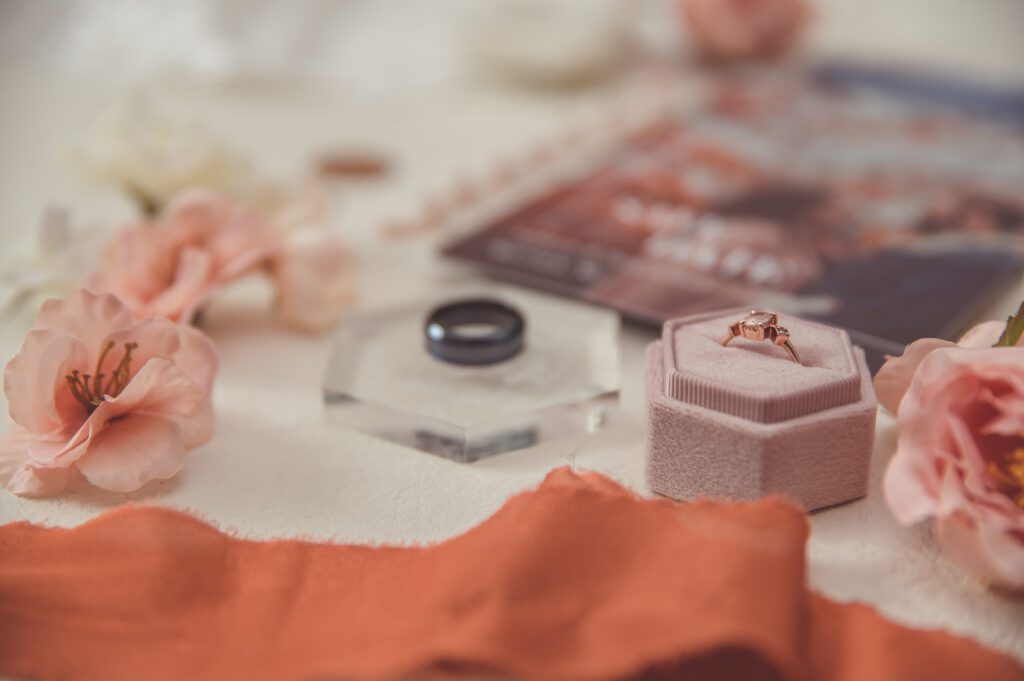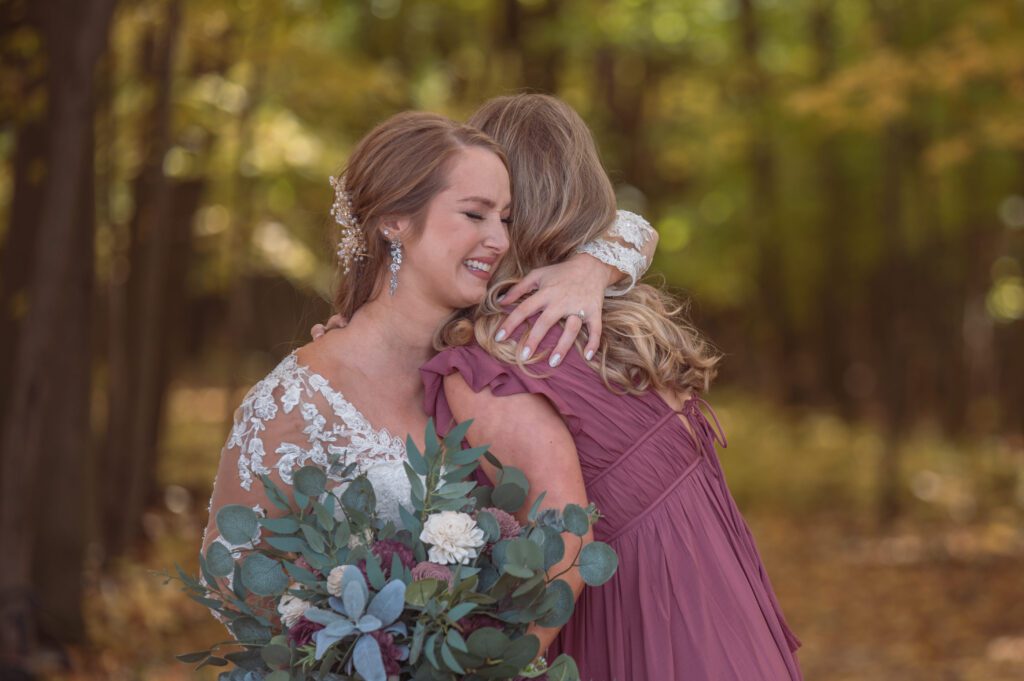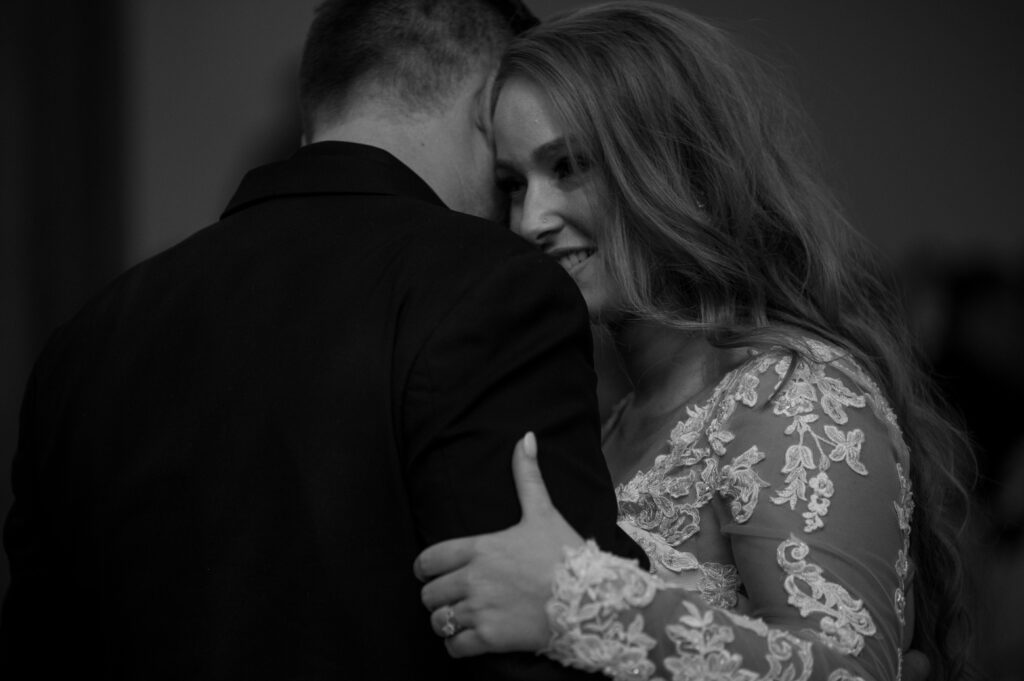So, you got engaged, but are you asking yourself, “how to plan a wedding?”. Planning a wedding can be a joyous and exciting time, but it can also be a bit overwhelming. That’s why I’ve put together this ultimate guide to help brides like you navigate the wedding planning process with ease. In this guide, you’ll find helpful resources like a checklist, vendor selection advice, and creative ideas for your special day. Whether you’re a seasoned bride or a first-timer, this guide is here to make your wedding planning journey stress-free and memorable. So, where to start to plan a wedding? Let’s dive in!

The first thing to do when planning a wedding
When answering the question how to plan a wedding, I have to answer where to start? The first step in planning a wedding is usually to set a budget. Then, determine the size of the guest list. This will help guide all further decisions. It will also ensure that you stay within your financial means while still having the wedding of your dreams. From there, you can start exploring venues, selecting a date, and beginning to assemble your wedding planning team.
What to Include in a Wedding Budget
A wedding budget should include all of the expenses associated with the wedding ceremony and reception. Some common expenses include the venue, catering, flowers, decorations, music, photography, transportation, attire, and stationery. It’s also important to budget for any miscellaneous items such as wedding favors, gifts for the wedding party, and a marriage license. When creating a budget, it’s crucial to prioritize which items are most important to you and allocate the largest portions of your budget accordingly. Don’t forget to factor in a contingency fund for unexpected expenses, as well as any applicable taxes. It’s helpful to consult with a wedding planner or use online tools to get a better understanding of the typical cost breakdown for a wedding.
How Far in Advance Should You Plan a Wedding
The ideal time to start planning your wedding depends on a few factors, including the time of year you want to get married, the size of your guest list, and the availability of your desired venue. Generally, it’s recommended to start planning at least 9 to 12 months in advance for a traditional wedding with a large guest list. If you’re planning a smaller, more intimate wedding, you may be able to start planning 6 to 9 months in advance. However, it’s always better to start earlier rather than later, as popular venues and vendors can book up quickly. It’s important to keep in mind that the earlier you start, the more time you’ll have to research, compare options, and make informed decisions. This can help ensure that your wedding planning process is smoother and more stress-free.

Who Pays for What in a Wedding?
Traditionally, the bride’s parents are expected to pay for the majority of the wedding expenses, while the groom’s parents may contribute as well. However, this is not a hard and fast rule and the cost of a wedding can be split in many different ways depending on the couple’s preferences and financial situation.
Here is a common breakdown of wedding expenses and who pays for them:
- Bride’s attire: The bride
- Groom’s attire: The groom
- Wedding rings: The groom
- Flowers and decorations: The bride’s family
- Reception: The bride’s family
- Music and entertainment: The bride’s family
- Photography and videography: The bride’s family
- Transportation: The bride’s family
- Wedding favors: The bride and groom
It’s important for the couple and their families to have open and honest communication about their budget and expectations to avoid any misunderstandings or hurt feelings. Ultimately, the most important thing is for the couple to have a beautiful and memorable wedding day, no matter who pays for what.
What is the Average Cost of a Wedding?
The average cost of a wedding in the United States is around $33,000, but this number can vary greatly depending on several factors such as the location, size of the guest list, and the level of extravagance desired. Weddings in larger cities tend to be more expensive than those in smaller towns, and a wedding with a large guest list will typically cost more than a smaller, more intimate affair.
It’s important to note that the cost of a wedding can quickly escalate, so it’s important to set a budget and stick to it as closely as possible. There are many ways to cut costs, such as choosing a less expensive venue, opting for less elaborate decorations, or having a wedding on a day other than a Saturday. The most important thing is to make sure that the wedding reflects the couple’s personalities and style, while also staying within their budget.

How to Pick a Wedding Date
Choosing a wedding date can be a difficult decision, but it’s important to consider several factors before making a final choice:
- Availability of venue and vendors: Check the availability of your desired venue and preferred vendors before setting a date.
- Scheduling conflicts: Make sure the wedding date doesn’t conflict with any important events or holidays for the couple, their families, or their guests.
- Season: Consider the season and weather, as it can impact the type of wedding you want to have and the cost of certain vendors, such as florists.
- Budget: Some dates, such as weekends and holidays, may be more expensive to book than weekdays.
- Personal significance: Consider if the date has personal significance to the couple, such as an anniversary or a special date.
Once you’ve considered these factors, you can start to narrow down your options and make a final decision. It’s also helpful to communicate with your partner, families, and wedding party to make sure everyone is on the same page.
How to Pick a Wedding Venue
Choosing a wedding venue is one of the most important decisions you’ll make during the wedding planning process. Here are some factors to consider when choosing a wedding venue:
- Guest list size: Make sure the venue can accommodate the size of your guest list.
- Budget: Consider the cost of the venue, as well as any additional fees, such as catering, decorations, and parking.
- Location: Consider the location and ease of accessibility for you and your guests.
- Style: Make sure the venue fits the style and theme of your wedding.
- Availability: Check the availability of the venue on your preferred wedding date.
- Inclusions: Find out what is included in the rental fee, such as tables, chairs, linens, lighting, and audio equipment.
- Weather contingency: If you’re planning an outdoor wedding, make sure the venue has a backup plan in case of inclement weather.
Once you’ve considered these factors, it’s a good idea to schedule tours of several potential venues and ask plenty of questions. It’s also helpful to bring along a trusted friend or family member for a second opinion. If you’re a Michigan Bride or Groom, be sure to check out my blog on some of the best venues in Michigan!
How to Pick a Wedding Theme
Picking a wedding theme can help make your special day feel cohesive and personalized. Here are some steps to help you choose a wedding theme:
- Consider your personal style: Your wedding theme should reflect your personal style and tastes as a couple.
- Think about your venue: The venue you choose can inspire your wedding theme.
- Decide on a time of year: The time of year you get married can influence your theme, such as a spring garden wedding or a winter wonderland theme.
- Set a color palette: Choose a color palette that complements your theme and venue.
- Research and gather inspiration: Look for inspiration in magazines, wedding blogs, and Pinterest to get ideas for your theme.
- Choose elements that are meaningful to you: Incorporate elements into your theme that have personal significance to you and your partner, such as a shared hobby or cultural heritage.
- Consider your budget: Make sure your theme is realistic and feasible within your budget.
Once you have a clear idea of your theme, you can start to make decisions about the other aspects of your wedding, such as the attire, decorations, and food. Don’t be afraid to get creative and have fun with your theme!

What Vendors Are Needed for a Wedding
The specific vendors needed for a wedding can vary depending on the couple’s preferences, but here is a list of the most common wedding vendors:
- Wedding planner or coordinator
- Venue
- Catering
- Photographer: Check out my blog on the “Average cost of a wedding photographer“
- Videographer
- Florist
- Musician or DJ
- Hair and makeup artist
- Wedding dress and formalwear
- Cake or dessert vendor
- Stationery (invitations, programs, etc.)
- Rentals (tables, chairs, linens, lighting, etc.)
- Transportation
- Wedding favors and gifts
It’s important to research and carefully consider each vendor before making a decision, as well as to work within your budget. You may also need to consider additional vendors for specific services, such as a calligrapher for addressing invitations, or a wedding officiant.
Tips on Planning a Stress-free Wedding
Planning a wedding can be stressful, but there are ways to reduce stress and make the process more enjoyable. When wondering how to plan a wedding, you might also wonder how to make the process stress-free. Here are some tips for planning a stress-free wedding:
- Prioritize what’s important: Focus on what matters most to you and your partner, and let go of the things that are not as important.
- Hire a wedding planner: A professional wedding planner can help with all aspects of the wedding planning process and take on many tasks, freeing up time and reducing stress.
- Stay organized: Keep track of important deadlines, appointments, and decisions with a wedding planner or a system that works for you. Check out this wedding planning checklist.
- Set a budget: Determine how much you’re willing and able to spend on your wedding and stick to it to avoid overspending and financial stress.
- Delegate tasks: Assign tasks to trusted friends, family members, and wedding party members to lighten your load.
- Take breaks: Make time for yourself and your partner to relax and recharge, whether it’s a date night, a weekend getaway, or a workout.
- Communicate effectively: Maintain open communication with your partner, wedding party, and vendors to avoid misunderstandings and conflicts.
- Focus on the big picture: Remember why you’re getting married and focus on the love and joy you’ll share on your special day.
By following these tips, you can reduce stress and make the wedding planning process a positive and memorable experience.

In conclusion, right after you get engaged you can start wondering how to plan a wedding. Hopefully this blog gives you helpful tips and makes it easier for you!
Check out my other blogs for more helpful resources!
